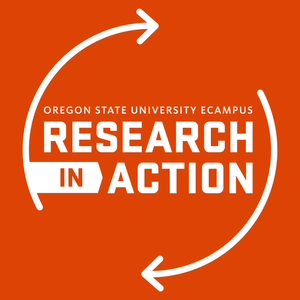
Religious Tourism
01/24/25 • 17 min
https://www.tandfonline.com/doi/full/10.1080/14616688.2024.2423168
Abstract
Religiously motivated travel, such as pilgrimages, is one of the oldest forms of tourism. Over the past fifty years, religiously motivated tourism has experienced significant growth. Religious tourism has evolved in diverse contexts and locations, and it is increasingly explored by scholars from various fields. Existing literature on religious tourism suggests a growing diversification of visitors, who are driven by the diminishing significance of traditional religious beliefs in contemporary societies. Scholars have indicated a global decline in engagement with organised religions, possibly attributed to modern scientific knowledge, rational thinking, and secularisation. Consequently, there is a growing trend where individuals travel to religious and pilgrimage sites that hold personal significance or meaning for them. In the post-pandemic context, more attention should be given to the wellness aspects of religious tourism, including the mental, physical, and spiritual health benefits. Religious tourism, especially in developing regions and remote areas, has been viewed as part of economic diversification strategies. To provide pathways for how religious tourism can actually benefit the local community and economy in practice, there is a need for more in-depth research and analysis. More critical research can explore how economic development influences or impacts poverty alleviation, sustainability, accessibility, and environmental impacts. For future research, beyond tourists’ perspectives, more attention on the perspectives of communities and local stakeholders is required. Since Western contexts, conceptualisations, methodologies, and interpretations still dominate the field, it is essential to incorporate holistic perspectives and understandings from a broader body of scholars. Encouraging local scholarship is important to foster more balanced discussions within this field of study. Methodologies should expand and become more creative, moving beyond quantitative studies and incorporating more fieldwork. Scholars need to address practical problems related to religious tourism sites by collaborating with policymakers, tourism operators, local communities, and religious associations.
Hosted on Acast. See acast.com/privacy for more information.
https://www.tandfonline.com/doi/full/10.1080/14616688.2024.2423168
Abstract
Religiously motivated travel, such as pilgrimages, is one of the oldest forms of tourism. Over the past fifty years, religiously motivated tourism has experienced significant growth. Religious tourism has evolved in diverse contexts and locations, and it is increasingly explored by scholars from various fields. Existing literature on religious tourism suggests a growing diversification of visitors, who are driven by the diminishing significance of traditional religious beliefs in contemporary societies. Scholars have indicated a global decline in engagement with organised religions, possibly attributed to modern scientific knowledge, rational thinking, and secularisation. Consequently, there is a growing trend where individuals travel to religious and pilgrimage sites that hold personal significance or meaning for them. In the post-pandemic context, more attention should be given to the wellness aspects of religious tourism, including the mental, physical, and spiritual health benefits. Religious tourism, especially in developing regions and remote areas, has been viewed as part of economic diversification strategies. To provide pathways for how religious tourism can actually benefit the local community and economy in practice, there is a need for more in-depth research and analysis. More critical research can explore how economic development influences or impacts poverty alleviation, sustainability, accessibility, and environmental impacts. For future research, beyond tourists’ perspectives, more attention on the perspectives of communities and local stakeholders is required. Since Western contexts, conceptualisations, methodologies, and interpretations still dominate the field, it is essential to incorporate holistic perspectives and understandings from a broader body of scholars. Encouraging local scholarship is important to foster more balanced discussions within this field of study. Methodologies should expand and become more creative, moving beyond quantitative studies and incorporating more fieldwork. Scholars need to address practical problems related to religious tourism sites by collaborating with policymakers, tourism operators, local communities, and religious associations.
Hosted on Acast. See acast.com/privacy for more information.
Previous Episode

Tourism at the end of the world: places to play as kinopolitical constellations
https://www.tandfonline.com/doi/full/10.1080/14616688.2024.2360629
Abstract
This commentary reflects on the geopolitical and the kinopolitical intersections of tourist places, performances, and placemaking. All tourism can be said to be geopolitical, as well as kinopolitical. Tourism involves uneven relations of (im)mobilities that are shaped by and shaping of state power, state borders, national identities, and political alliance and conflicts. Geopolitical relations affect who can ‘play’ at being a tourist, where they can play, and how places rise and fall in the geopolitical theatre of desirability, security, and affordability for different types of tourism. Kinopolitical relations affect how these relations play out in actual places and embodied performances. The current inequalities of the global economy foster geopolitically uneven tourism constellations, with crucial societal and ecological impacts that are the core question of the future of tourism within a system of kino-geopolitics.
Hosted on Acast. See acast.com/privacy for more information.
Next Episode

Place agency and visitor hybridity in place-making processes at sacred heritage sites
https://www.tandfonline.com/doi/pdf/10.1080/14616688.2024.2443897
Abstract
This paper investigates the relational nature of place-making at sacred heritage sites, taking Kyoto, Japan, as a case study to analyse how domestic tourists construct meaning in interaction with the spatial environment. Based on 11 semi-structured online interviews with Japanese spiritual tourists, an in-depth exploration of participants’ interactions with and co-construction of sacred spaces was conducted. The analysis centres on two themes. First, visitors embody fluid, overlapping roles that blend secular and sacred motivations, moving beyond fixed categories of insider or outsider. These hybrid roles reflect the fluidity of visitor identities and intentions in their engagement with sacred sites. Second, the paper highlights the agency of the places themselves in place-making processes. Sacred sites such as Kiyomizu-dera and Fushimi Inari Taisha are not passive backdrops. Rather, they are active participants that shape visitor experiences and interactions through their physical, natural, and sensory affordances in the form of: (1) a bridge to the supernatural; (2) human-made materiality; (3) natural materiality; (4) atmosphere. Consequently, we conclude that a relational understanding of place-making at sacred sites should recognise the complex interplay between the fluid role of visitors and the active agency of the sites, a process in which both human and non-human actors co-construct the meaning and experience of place.
Hosted on Acast. See acast.com/privacy for more information.
If you like this episode you’ll love
Episode Comments
Generate a badge
Get a badge for your website that links back to this episode
<a href="https://goodpods.com/podcasts/tourism-geographies-podcast-426667/religious-tourism-82884021"> <img src="https://storage.googleapis.com/goodpods-images-bucket/badges/generic-badge-1.svg" alt="listen to religious tourism on goodpods" style="width: 225px" /> </a>
Copy




